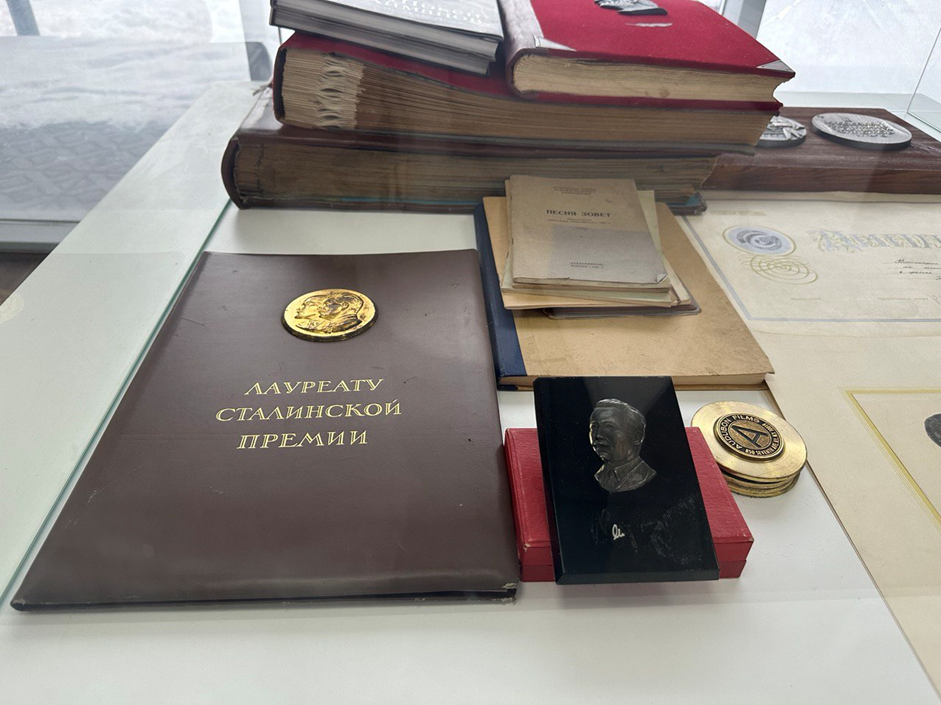"He looks like all my grandfathers at once!". What is the uniqueness of the Shaken Aimanov Museum?
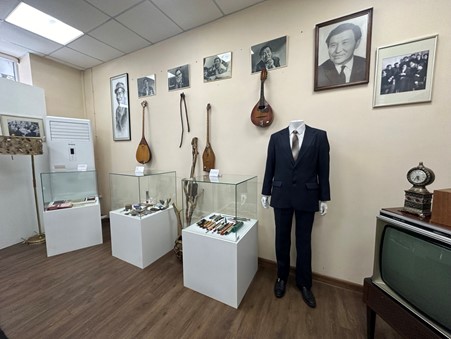
The Shaken Aimanov Cinema Museum fully opened in 2019. It has three halls, one of which is entirely dedicated to the work of the great director and actor Shaken Kenzhetayevich Aimanov.
This is a recreated director's office in the smallest detail.
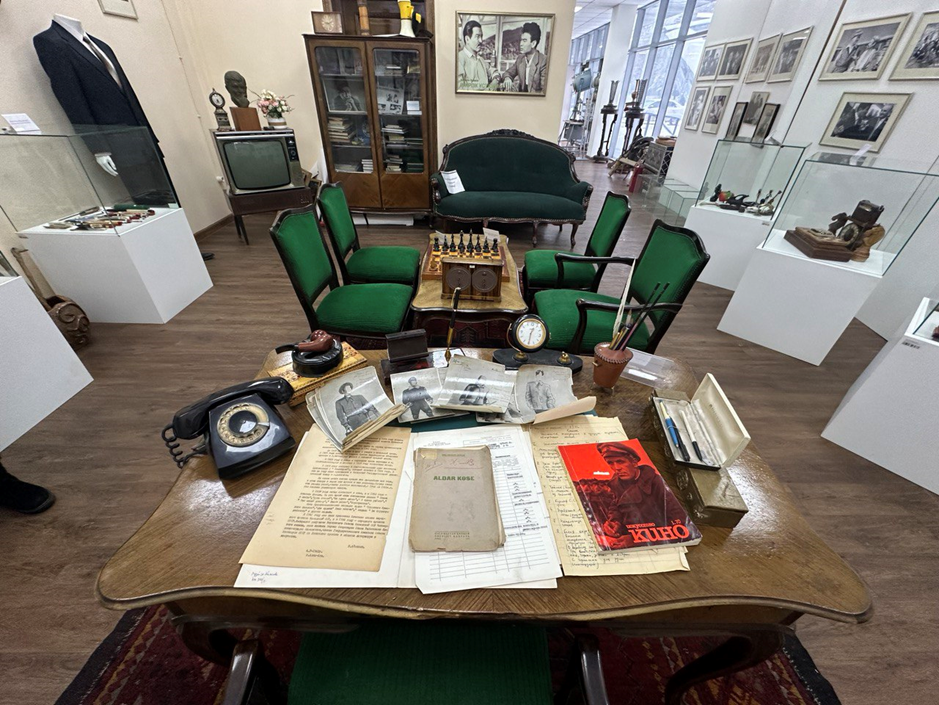
Authentic scripts, costume sketches for films, a black rotary telephone, a tube and even an inkwell are laid out on the table. Each exhibit is a fragment of a unique story telling about the life and creative genius of Shaken Aimanov. Here you can find collections of lighters, Soviet badges, as well as knives.
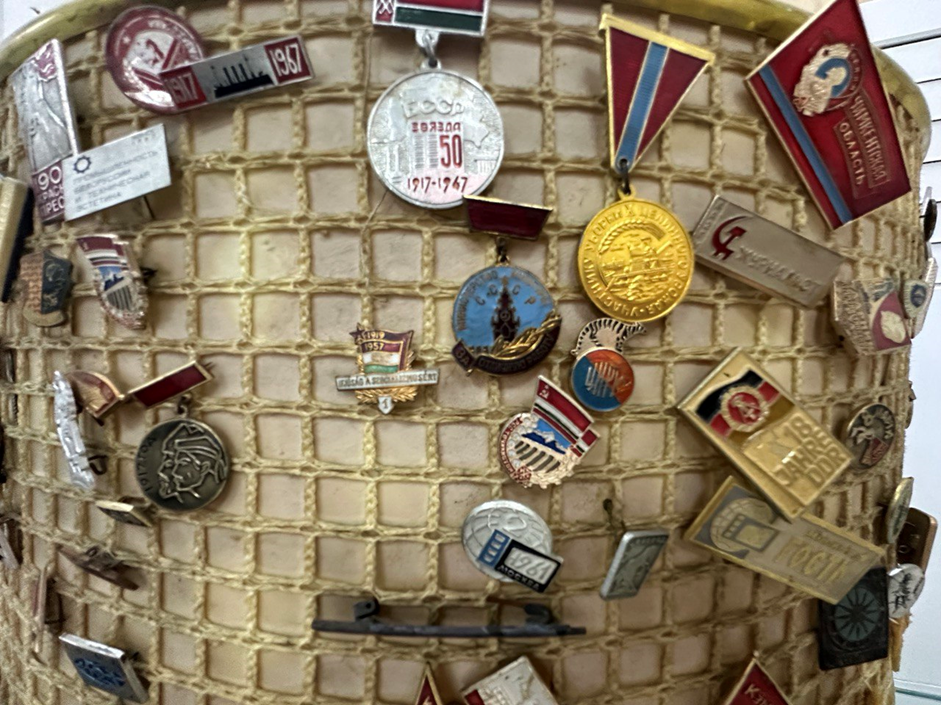
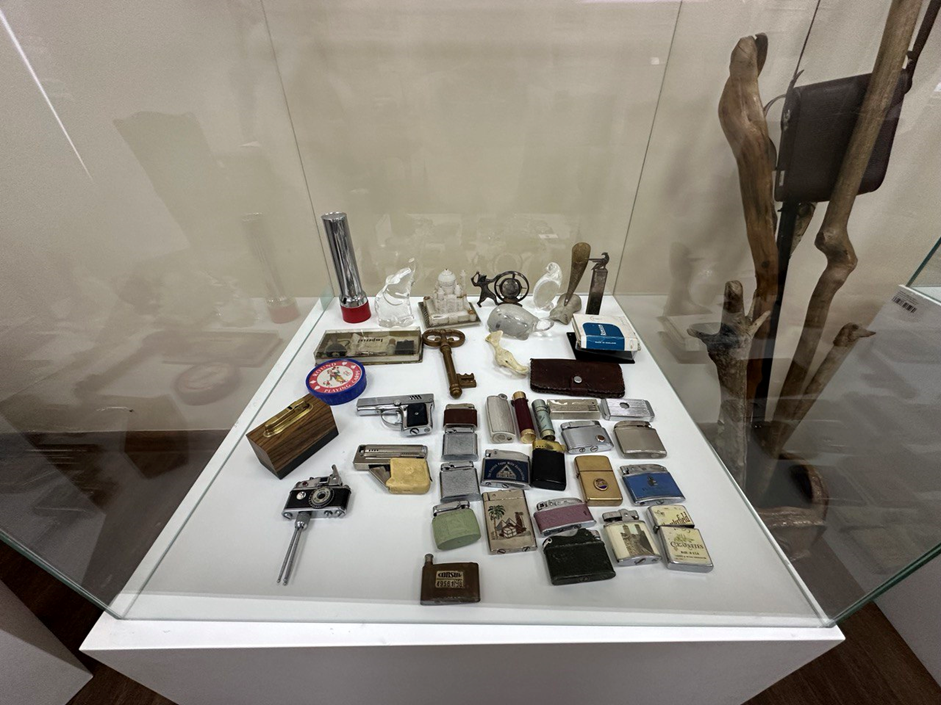
Photos of Shaken Kenzhetayevich from the filming are hung on the walls.
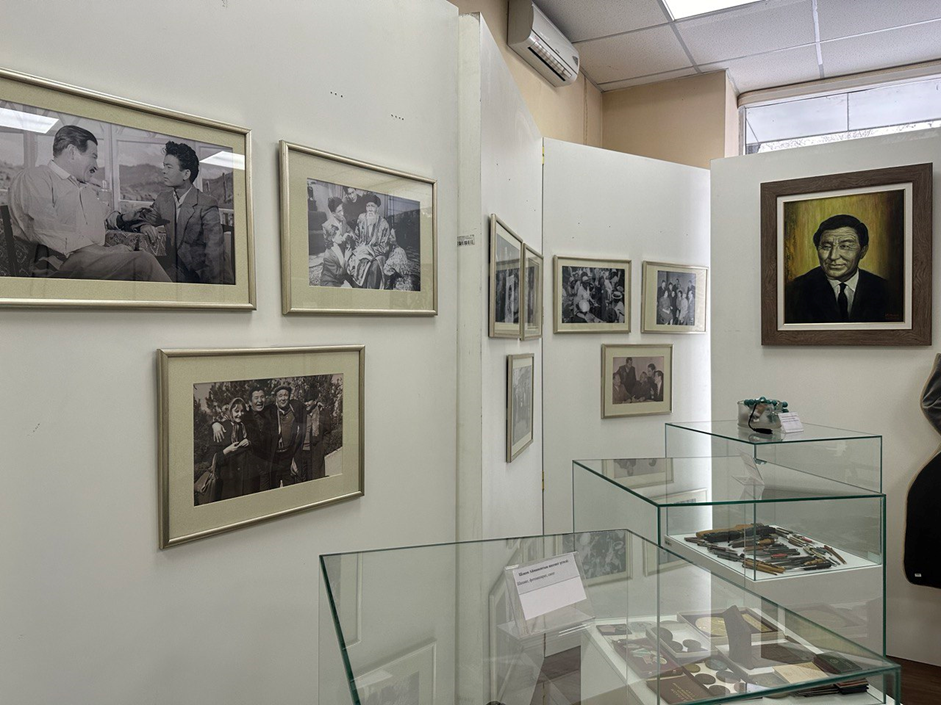
There is also filming props - the legendary staff of Aldar-Kose from the film "Beardless Deceiver".
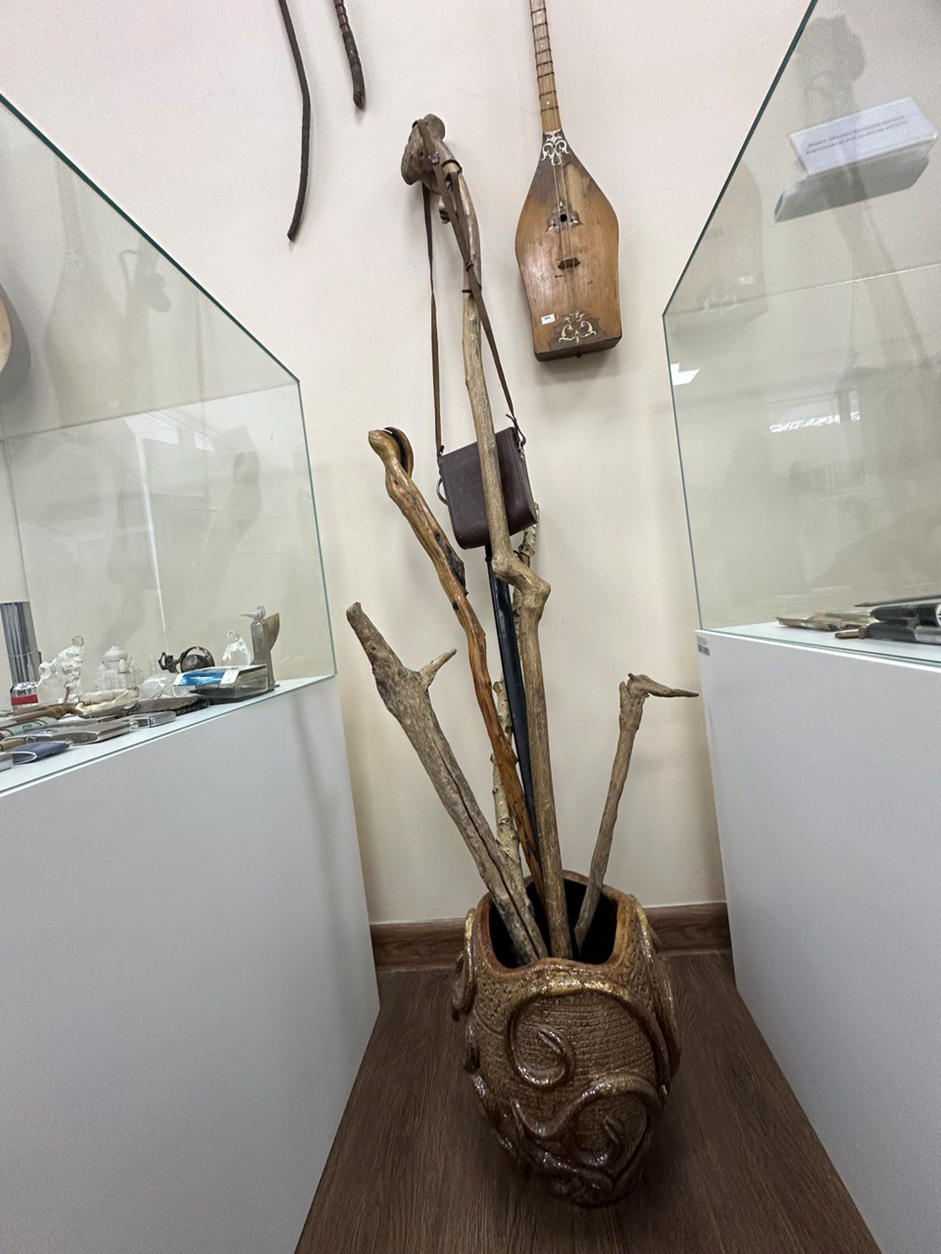
And one of the main things that you pay attention to is three beautiful dombras.
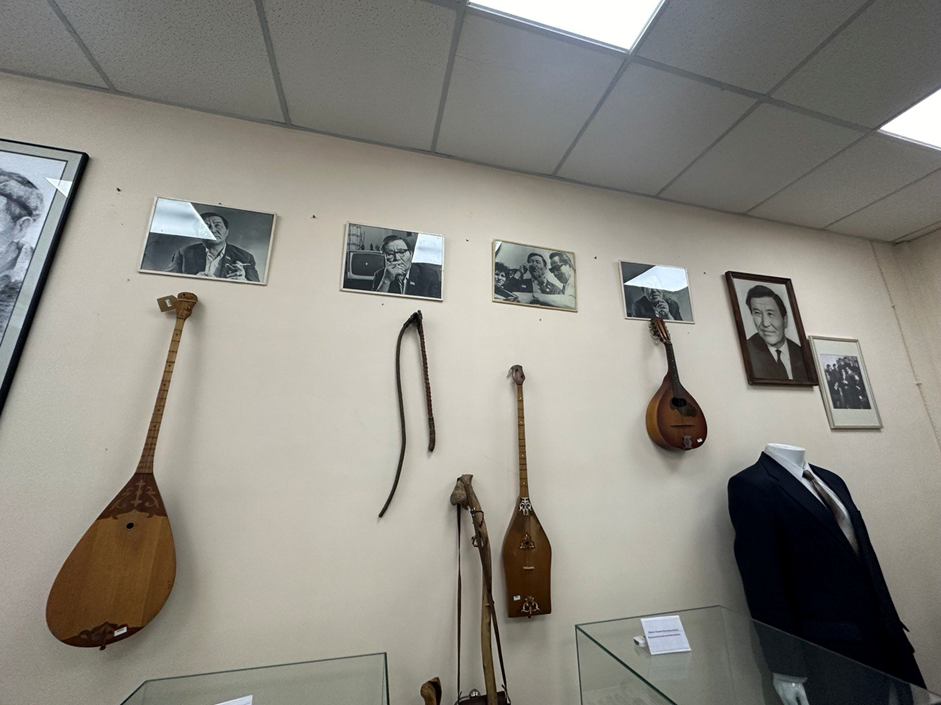
The musical instrument, which became a faithful companion of Shaken Aimanov's life, played a significant role in his fate. It was thanks to the skillful playing of the dombra and a touching attitude to the instrument that he received the main role in the film "Jambul".
Initially, the director of the film, Efim Dzigan, relied on the external similarity of the actors with the image of the famous akyn Zhambyl Zhabayev. During the casting, five candidates were selected whose appearance most closely matched the portrait of the akyn.
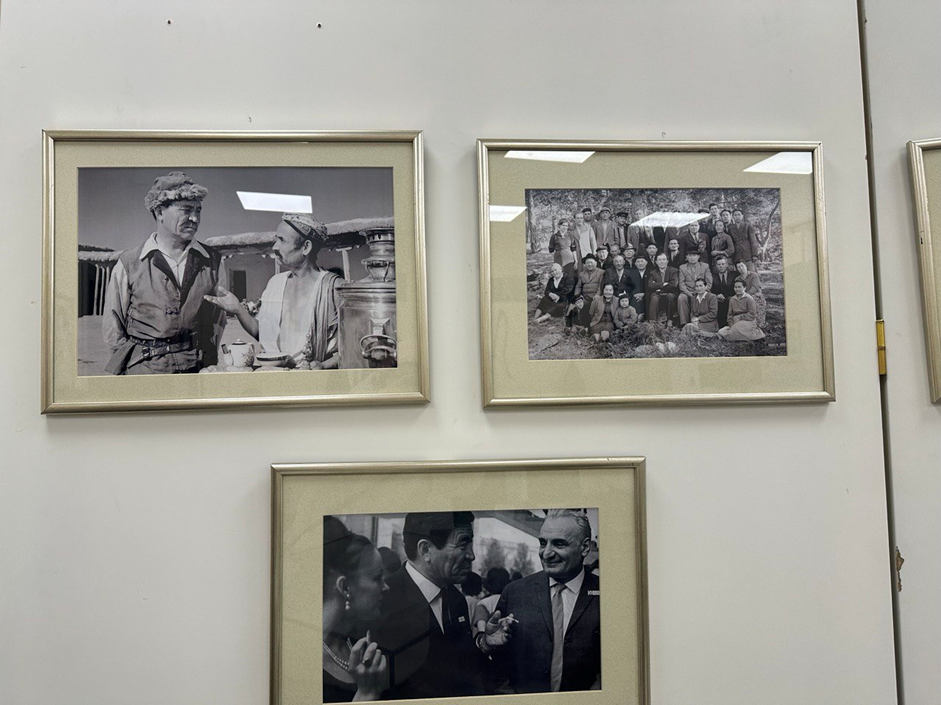
Shaken Kenzhetayevich was considered for the role of a Bai sycophant-poet. His appearance did not coincide with the image of Zhambyl, and at the time of the auditions he was 30 years old, and according to the script it was required to play a hundred-year-old elder.
However, during the auditions, Aimanov not only recited the poems of Abai and Zhambyl, he did it with such warmth and cordiality, patting the dombra in a fatherly way, that he won the heart of the director. It was this sincere love for the instrument that became the decisive factor in the approval of Shaken for the main role.
There are also legendary chess of the director. In the breaks between filming, he invariably took up the chessboard, whether on the set or in the circle of friends.
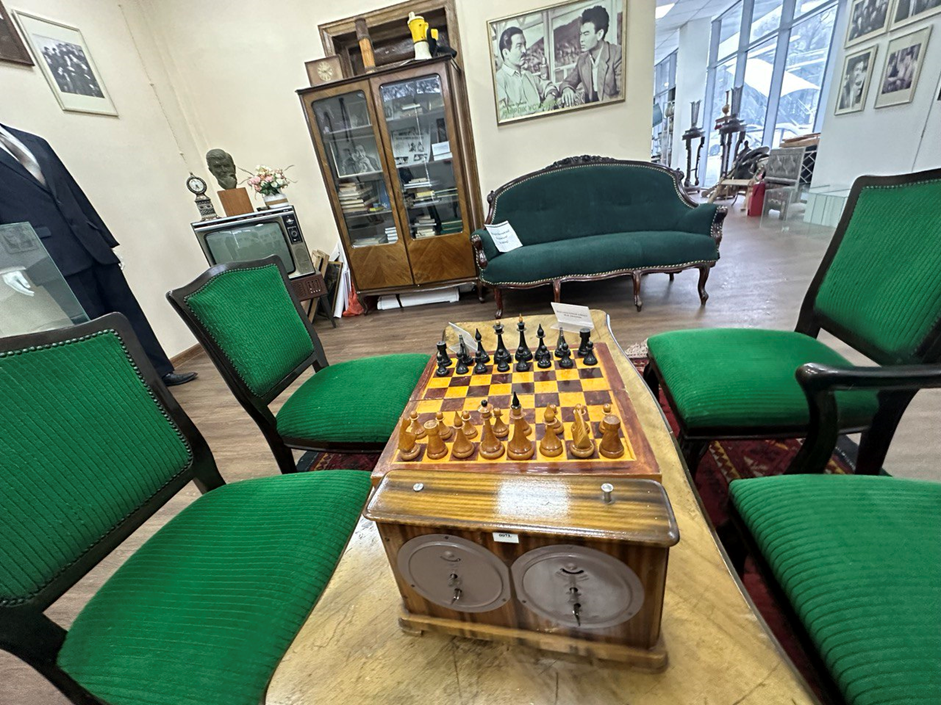
The museum presents both classic chess and small ones, which Aimanov wore in his jacket pocket.
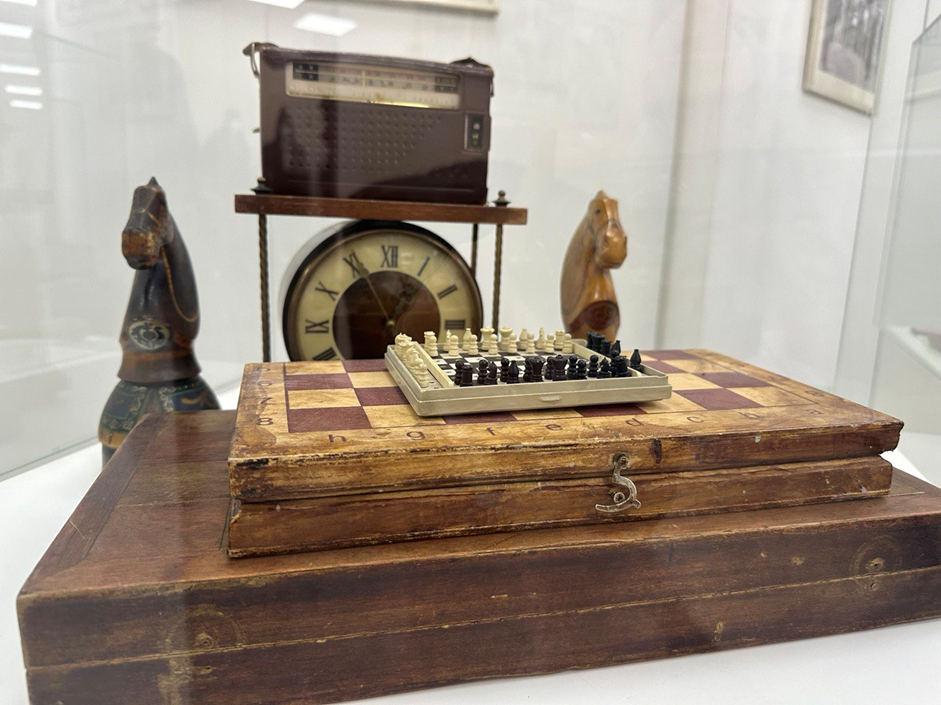
Each item, whether it is a lighter, a pen or even a razor, was painstakingly collected for years from relatives, colleagues and friends of the master. The preservation and replenishment of the collection of exhibits was carried out by the Kazakh director-producer Ulzhan Koldauova and the People's Artist of the USSR Asanali Ashimov.
In many ways, thanks to them, the Shaken Aimanov Hall illustrates not only the life of a single genius, but also an entire era.
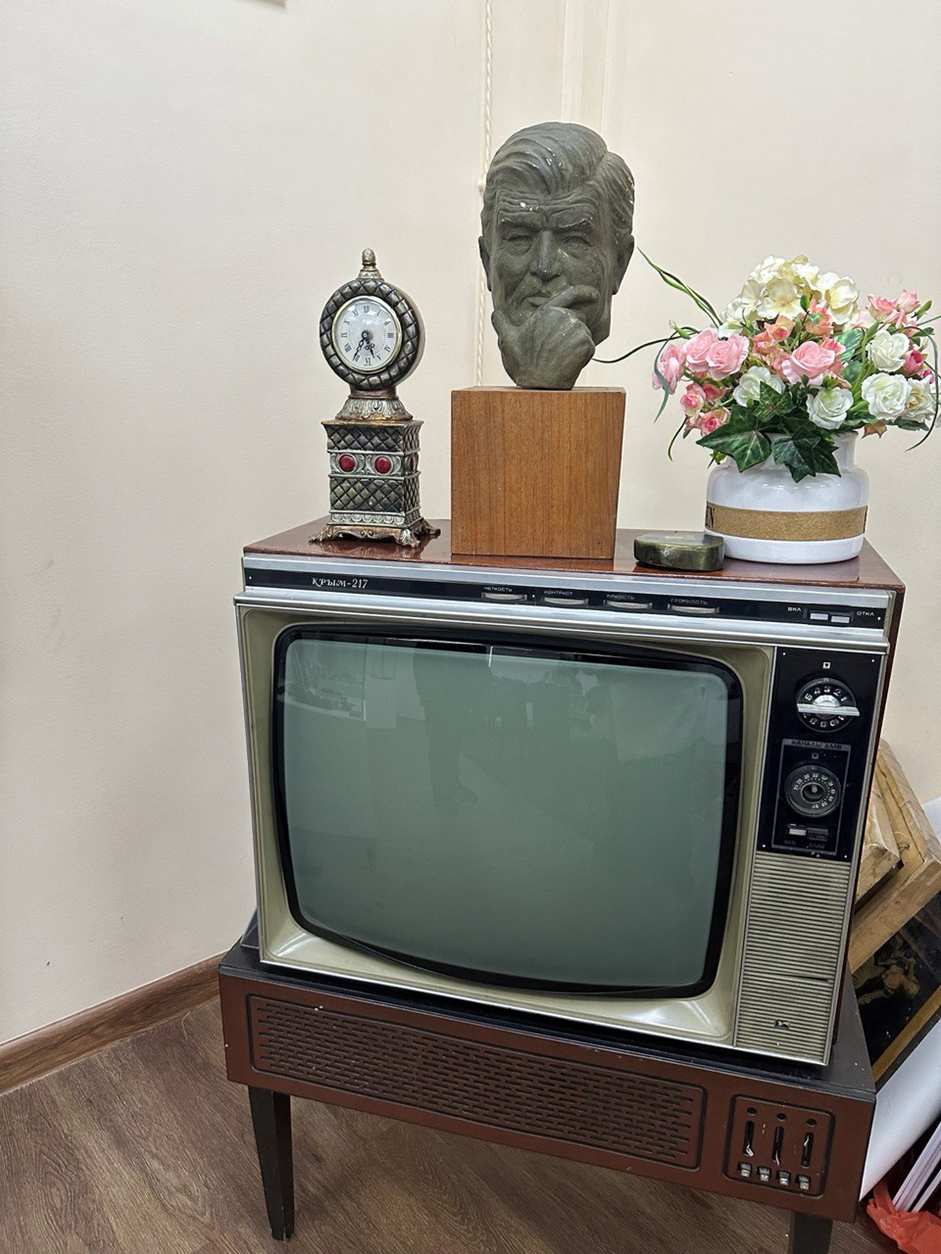
The Cinema Museum would be incomplete without antique film equipment and unique costumes from historical paintings. For example, a camisole, dress and saukele from the film "Kyz-Zhibek". The museum also features huge film cameras of the time, two of which were filmed by Shaken Aimanov.
In addition to photographs, posters of paintings by the great director are hung on the walls.
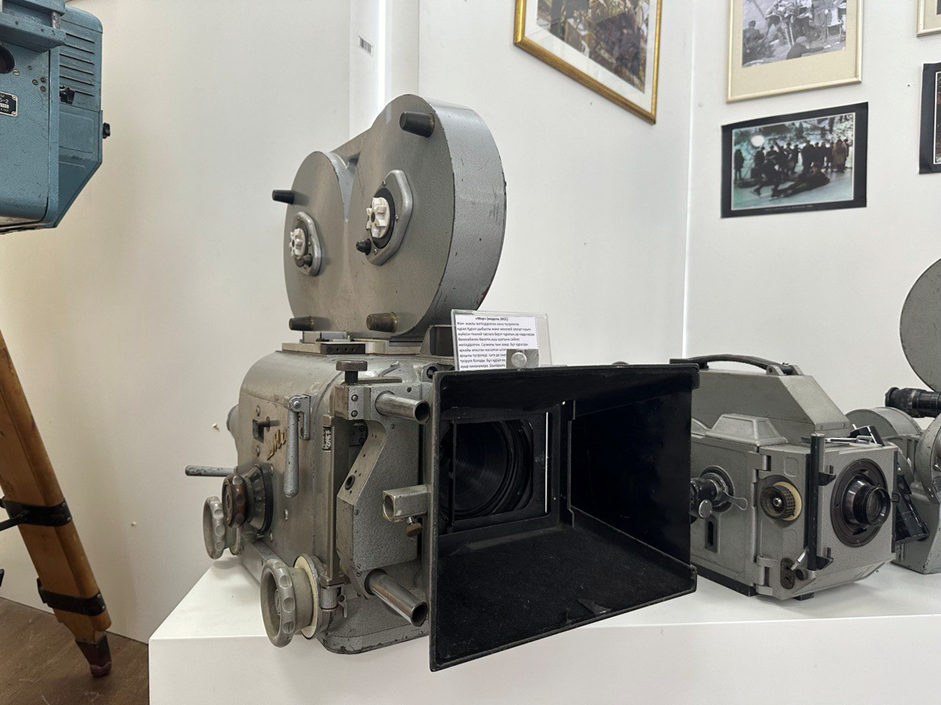
The director of the museum and actress Bakyt Sultanova tells about the museum with interest:
"The museum is never empty. Schoolchildren and students, residents of other regions come to us. There are a lot of foreigners, people come from Russia, Ukraine, Great Britain. Aimanov was the first person to translate Othello's monologue into Kazakh and read it in England for the 400th anniversary of Shakespeare."
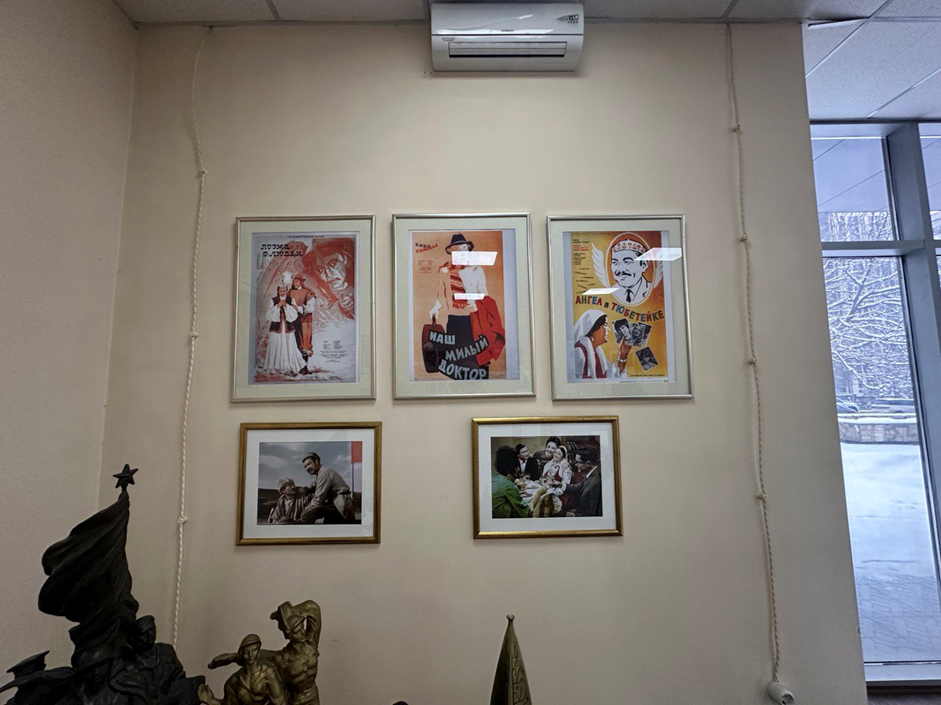
First-graders who came on an excursion in a motley circle surrounded Bakyt-apai.
"And what is this, Bakyt-apai?", "Are the photos specially black and white, Bakyt-apai?", "And why is Aga young there, and old here?" - children's voices sounded.
"I understood! - shouted a boy in a red down jacket, - He has such a kind face that he looks like all my grandfathers at once!"
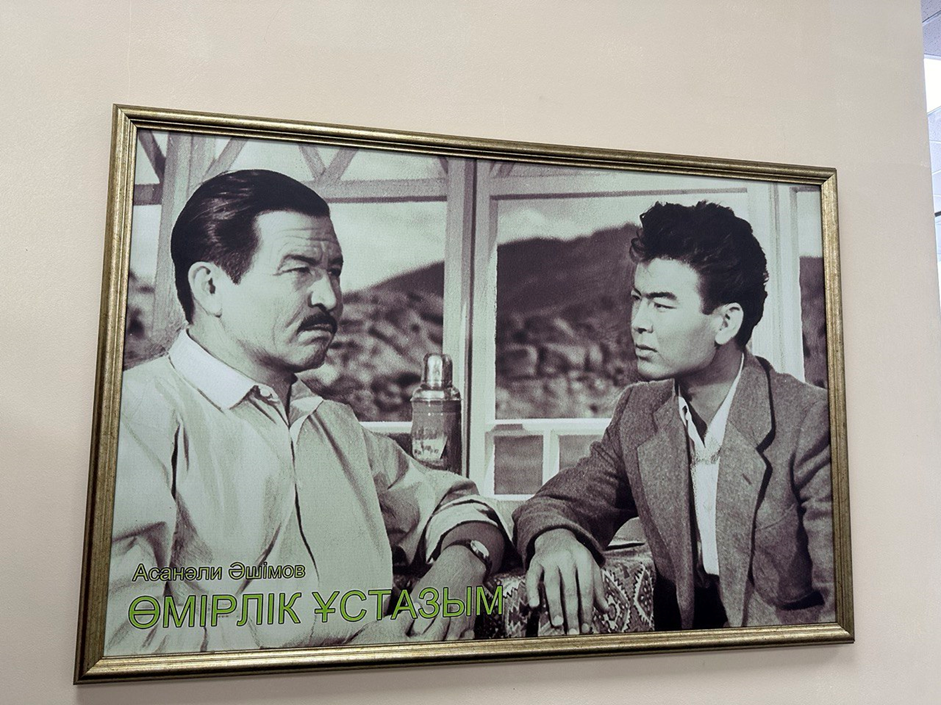
Shaken (Shakhkerim) Kenzhetayevich Aimanov (1914-1970) - outstanding Kazakh and Soviet film director, screenwriter, actor, People's Artist of the USSR (1959). One of the founders of Kazakh cinema.
Famous works:
● Films: "The End of the Ataman" (1970), "Angel in a Skullcap" (1968), "Land of Fathers" (1966), "Beardless Deceiver" (1964), "The Song Calls" (1961), "Our Dear Doctor" (1957), "Golden Horn"" (1948)
● Scenarios: "Aksak Kulan" (1968), "Crossroads" (1963)
Achievements:
● Laureate of the Stalin Prize of the second degree (1952)
● Laureate of the State Prize of the Kazakh SSR (1967)
● Awarded the Orders of Lenin, the Red Banner of Labor, "Badge of Honor"
